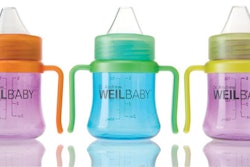It’s a significant new burden on companies that adds a new legal obligation to food companies, one that can create some pragmatic difficulties for the companies. We’ll talk about the significance of this big new change to your business in a moment, but first a review of the basic facts:
• Only FDA-regulated foods are included (so not meat and poultry, which U.S. Department of Agriculture regulates). However, dietary supplements aren’t included (they have their own separate reporting obligation), and infant formulas aren’t included either;
• The one who has to report is the ‘responsible party,’ defined as the entity who submitted the food facility registration to FDA under the Bioterror Act provision requiring food facilities to be registered. That means both domestic and foreign facilities have this new reporting obligation;
• It also means food additive makers, because their facilities are registered, would have to report. Food-contact substance makers, (i.e., food packaging) who aren’t required to register, do not therefore have this new reporting obligation for Reportable Foods;
• You have to report to FDA within 24 hours of determining the food is reportable;
• Moreover, state and local health officials, if they discover a Reportable Food, can voluntarily report it to FDA;
• The food you report need not be yours—it could be an ingredient sent to you by a supplier, for example;
• Only if ALL THREE of these facts are true would a responsible party not have to report a Reportable Food: [1] If the adulteration originated with that responsible party; [2] that responsible party detected it before the food was transferred to another person; AND [3] that responsible party corrected the adulteration or destroyed the food, or caused its destruction;
• FDA is setting up an Internet portal, the Reportable Food Registry, for responsible parties to submit reportable food reports, detailing all the requisite information. That’s how you have to report;
• Once you report, you also have to investigate the cause, if it may have originated with you, and you have to submit supplemental reports afterwards;
• FDA may require those who report a Reportable Food to also notify one level up and one level down, that is, their immediate suppliers and immediate recipients;
• Failure to report a Reportable Food as required by law is a new “prohibited act” under the Federal Food, Drug and Cosmetic Act, which means it subjects your company (and maybe even you individually) to all potential FDA penalties;
• Reportable Food Registry reports are not publicly available and won’t be seen by other submitters. Members of the public can get some of the information about the reports under the Freedom of Information Act, with appropriate information redacted (such as confidential business information, for example). FDA will soon provide more details about what information will and won’t be made public via FOIA.
• Reporters have to keep records of their reports for 2 years;
• Making a report is NOT a legal admission of liability on the reporter’s part of any kind, and the law says so specifically.


























